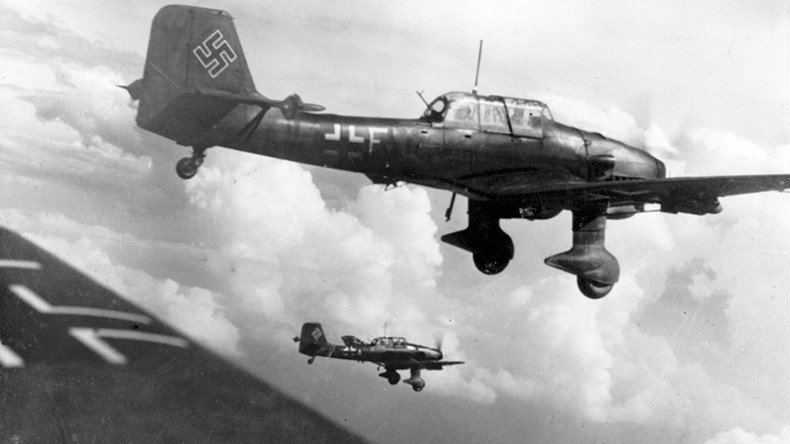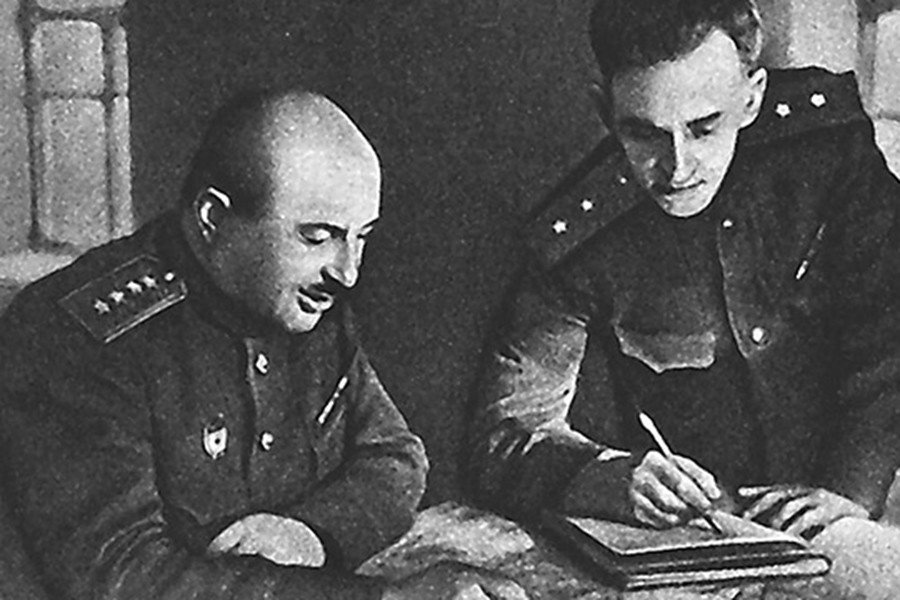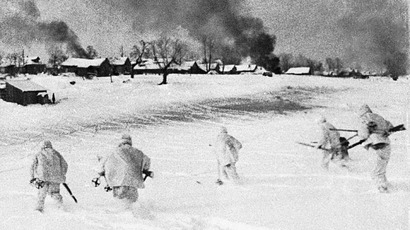Russian MoD declassifies docs on Soviet Union’s preparedness for 1941 Nazi invasion

The Russian Defense Ministry has declassified and published documents detailing how victorious USSR reflected on the disastrous early days of Nazi Germany’s invasion. Military strategists wanted to know if the Soviet Union was unprepared for war.
The documents date back to the early 1950s and were penned by some of the most prominent generals in the Red Army at the time, including Marshal Ivan Bagramyan.
In 1952, the Soviet General Staff gathered a task force in its military science and history directorate, headed by Colonel-General Aleksandr Pokrovsky. Their task was to collect data, including eyewitness accounts, on the state of the Red Army shortly before and in the first part of the war with the Nazis.
As part of the study, Pokrovsky gathered accounts from surviving officers, who were in charge of the three western military districts and responsible for protecting the border. Among the five questions he asked for were details of how the Soviet armed forces prepared for a looming Nazi attack, how they responded to it, and whether or not the staff maintained control over the troops during the first frantic days of fighting.
The answers show disparity among various units, some of which were poorly-suited to perform their duties, while others managed to mount counterattacks. Some officers recall a shortage of trained officers and materiel, lack of communications equipment and transport, and other factors plaguing their troops and HQs.
Bagramyan, who headed Operations at the Kiev Special Military District in 1941, recalled how the HQ he was part of and the district artillery had been deployed ahead of the attack.
“By the beginning of hostilities all corps and division level artillery of the district was embedded with its units,” he wrote, adding that the warplanes in the district were successfully redeployed before the invasion, which saved them from destruction in the early days.

However, General Pyotr Sobennikov of the Baltic Military District recalled a radically different picture.
“One can judge how surprising the beginning of the war was by the fact that the forces of an artillery regiment, which was transported by railroad and reached Shulai Station at the dawn of June 22, took the bombing of our airports for a war game,” he wrote to Pokrovsky.
The district’s air force was badly damaged by the Nazi attack, leaving the Soviet military in the region with practically no air support.
“I should note that even on the night of June 22, I personally received a strict order from the head of the front staff Klenov to pull back the troops from the border, to leave the trenches, which I refused to do,” Sobennikov said. “There was a feeling of high tension, a fear of provoking a war.”
READ MORE: ‘My breathing mom was among corpses’: Putin recalls his parents’ WWII ordeal
The ministry has declassified about a hundred of pages of archived documents ahead of the anniversary of June 22, 1941, the beginning of the war with the Nazis. It says the memoirs may be somewhat subjective, but prove that the Soviet leadership objectively saw the German forces as superior to theirs in terms of experience and resources, and hoped to stall Moscow’s joining of World War II in order to better prepare for it.













